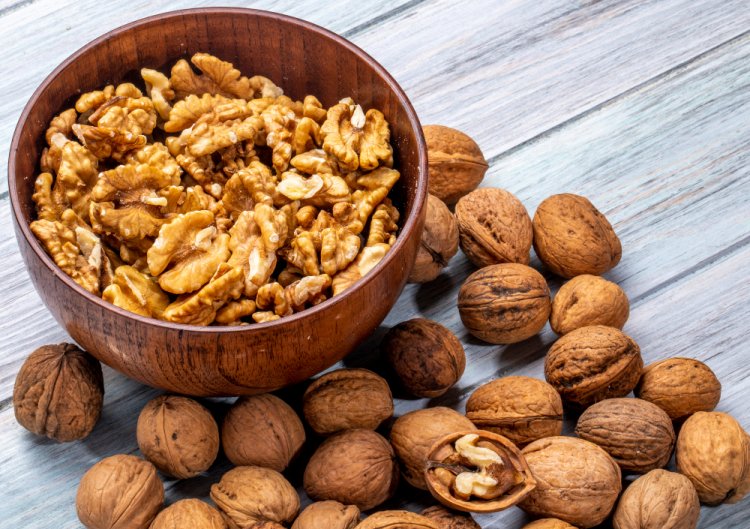Walnuts: A Comprehensive Overview of the Nutrient-Rich Powerhouse
Walnuts, scientifically known as Juglans regia, are tree nuts cherished worldwide for their unique flavor, texture, and abundance of health-promoting nutrients. Originating from regions such as the Mediterranean, Central Asia, and North America, walnuts have been a dietary staple for centuries, valued not only for their culinary versatility but also for their medicinal properties. This article aims to provide an in-depth exploration of the nutritional composition, health benefits, culinary applications, and cultural significance of walnuts.

Nutritional Composition
Walnuts boast an impressive nutritional profile, offering a wide array of essential nutrients vital for overall health. A single ounce (28 grams) serving of walnuts provides:
- Calories: 185
- Protein: 4.3 grams
- Fat: 18.5 grams (predominantly healthy unsaturated fats including omega-3 fatty acids)
- Carbohydrates: 3.9 grams
- Fiber: 1.9 grams
In addition to macronutrients, walnuts are rich in micronutrients such as:
- Vitamin E
- Various B vitamins (including folate, niacin, thiamine, and vitamin B6)
- Essential minerals like magnesium, phosphorus, copper, and manganese
Health Benefits
Heart Health
Walnuts are renowned for their cardiovascular benefits. The presence of omega-3 fatty acids, notably alpha-linolenic acid (ALA), contributes to reduced inflammation and improved lipid profiles, thereby lowering the risk of heart disease and stroke.
Cognitive Function
The omega-3 fatty acids and antioxidants in walnuts are known to support brain health. Regular consumption has been associated with enhanced cognitive function and a decreased risk of cognitive decline in older adults.
Weight Management
Despite their calorie density, walnuts can aid in weight management. Their combination of protein, fiber, and healthy fats promotes satiety, potentially reducing overall calorie intake and aiding in weight control.
Antioxidant Properties
Walnuts are rich in antioxidants, including polyphenols and vitamin E, which help combat oxidative stress and mitigate the risk of chronic diseases such as cancer and diabetes.
Anti-Inflammatory Effects
The polyphenols and omega-3 fatty acids present in walnuts exhibit anti-inflammatory properties, offering potential relief from conditions like rheumatoid arthritis and asthma.
Culinary Uses
Walnuts are incredibly versatile in the kitchen and can be incorporated into a wide range of dishes. They can be enjoyed:
- Raw as a convenient snack
- Toasted and sprinkled over salads or oatmeal for added crunch and flavor
- Ground into a paste for sauces, spreads, or dressings
- Included as an ingredient in baked goods like bread, cakes, and cookies for a nutty richness
- Utilized as a flavorful crust for meats such as fish or chicken
Cultural Significance
Walnuts hold cultural significance in many societies across the globe. They are often regarded as symbols of fertility, wisdom, and prosperity in various cultures. Furthermore, walnuts have been historically utilized in traditional medicine for their purported health benefits, ranging from improving digestion to enhancing skin health.
In summary, walnuts stand out not only for their delectable taste and culinary versatility but also for their remarkable nutritional composition and health-promoting properties. Whether consumed as a convenient snack or incorporated into diverse recipes, walnuts offer a convenient and enjoyable way to enhance overall health and well-being. By incorporating this nutrient-rich nut into your diet, you can take significant strides towards a healthier and more vibrant lifestyle.
#WalnutsNutrition #HealthBenefitsOfWalnuts #WalnutRecipes #WalnutAntioxidants #Omega3InWalnuts #CulinaryUsesOfWalnuts #WalnutHistory #WalnutSymbolism #NutrientRichWalnuts #HeartHealthyWalnuts #BrainBoostingWalnuts #WeightManagementWithWalnuts #AntioxidantRichWalnuts #InflammationFighterWalnuts #CulturalSignificanceOfWalnuts #WalnutDiet #TraditionalMedicineWalnuts #HealthyLivingWithWalnuts #NutritionAndWellness #SuperfoodWalnuts
Disclaimer:
The information provided in this article is for educational purposes only and should not be considered medical advice. If you have any health concerns or are experiencing symptoms, it is important to consult with a healthcare professional, such as a doctor or clinic, for proper diagnosis and treatment. Always seek the advice of your doctor or other qualified health provider with any questions you may have regarding a medical condition. Do not disregard professional medical advice or delay in seeking it because of something you have read in this article.
What's Your Reaction?





















